Eating healthy can take time, but it doesn’t have to be difficult. Mediterranean meal prep is the Best way to stay on track with a healthy diet without spending hours in the kitchen every day. The Mediterranean diet focuses on fresh vegetables, lean proteins, healthy fats, and whole grains. These foods help improve health and manage weight. If you plan ahead of time, you can enjoy these benefits all week long. This blog post will highlight the top 5 Mediterranean meal prep foods that will make your week healthier and easier.
What is Mediterranean Meal Prep?
Mediterranean meal prep means preparing meals using the key ingredients of the Mediterranean diet. Whole foods such as fruits, vegetables, whole grains, legumes, lean meats, and healthy fats are the main foundation of this diet. By prepping your meals in advance, you can save time, avoid unhealthy fast food choices, and ensure you’re eating nutrient-rich meals throughout the week.
Also, the Mediterranean diet has been proven to reduce the risk of heart disease, improve blood sugar control, and help you with weight loss. It’s also great for those who want to follow a balanced, plant-based diet, as well as those who prefer meals with fish or lean meats.
1. Mediterranean Quinoa Salad
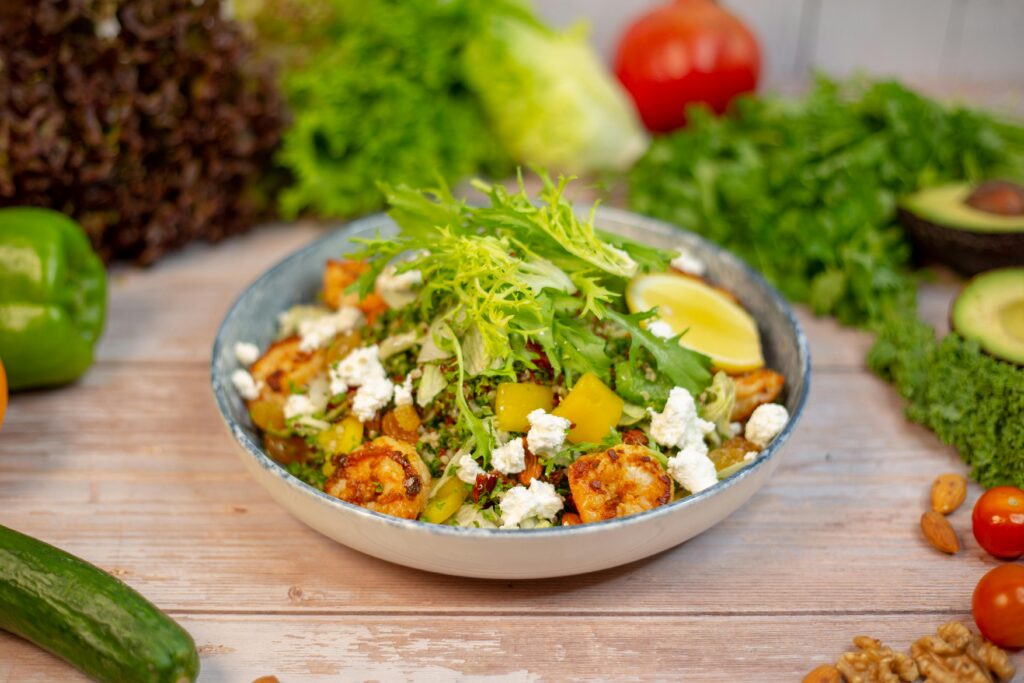
It is a great option for Mediterranean Meal Prep. Quinoa is a whole grain that’s high in protein and fiber, making it an excellent base for salads or bowls. You can make a big batch of this salad and store it in your fridge for up to 4-5 days. To make it, simply cook some quinoa and mix it with chopped cucumbers, cherry tomatoes, Kalamata olives, red onions, and a sprinkle of feta cheese. Finish with a drizzle of olive oil and lemon juice for extra flavor.
Why It’s Great for Meal Prep:
- Quinoa is a healthy, Mediterranean diet rice alternative that’s gluten-free and high in protein.
- It’s easy to customize with different vegetables or proteins.
- You can enjoy it as a lunch idea for a Mediterranean diet or as a side dish to other meals.
2. Mediterranean Diet Soup
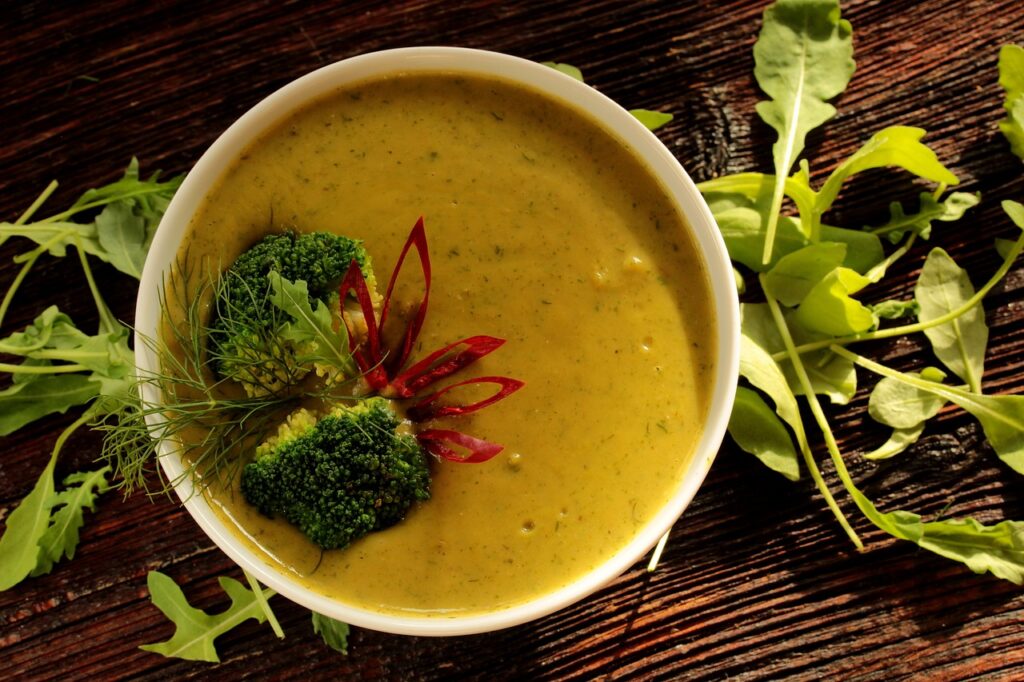
Soups are easy to make in large batches and store well in the fridge or freezer. Mediterranean diet soup recipes often feature healthy ingredients like beans, lentils, vegetables, and whole grains. A classic Mediterranean lentil soup is a perfect example. To make it, cook lentils with tomatoes, carrots, onions, garlic, and Mediterranean herbs like oregano and thyme. Add olive oil for healthy fats. This soup is hearty and can be made in bulk, so you have plenty of servings for the week.
Why It’s Great for Meal Prep:
- Lentils are a great source of plant-based protein, which is key in a vegan Mediterranean diet or for vegetarians.
- Mediterranean diet soup is filling and keeps you satisfied for longer.
- It’s easy to store and reheat, making it convenient for busy days.
3. Mediterranean Chicken Bowls

Grilled chicken is a simple, healthy protein that works well for Mediterranean diet lunch ideas and meal prep. You can grill a few chicken breasts and use them in Mediterranean bowls. Combine the chicken with brown rice, roasted vegetables like zucchini, bell peppers, and eggplant, and a drizzle of tzatziki sauce (Greek yogurt sauce).
This meal is nutritious and satisfying, providing lean protein, healthy fats, and plenty of fiber from the vegetables.
Why It’s Great for Meal Prep:
- This meal is budget-friendly, especially if you buy chicken in bulk for cheap Mediterranean meal prep.
- Grilled chicken is a quick and easy protein source that can be paired with various vegetables and grains.
- You can easily make this Mediterranean bowl meal prep recipe in bulk and store it for several days.
4. Mediterranean Hummus and Veggies
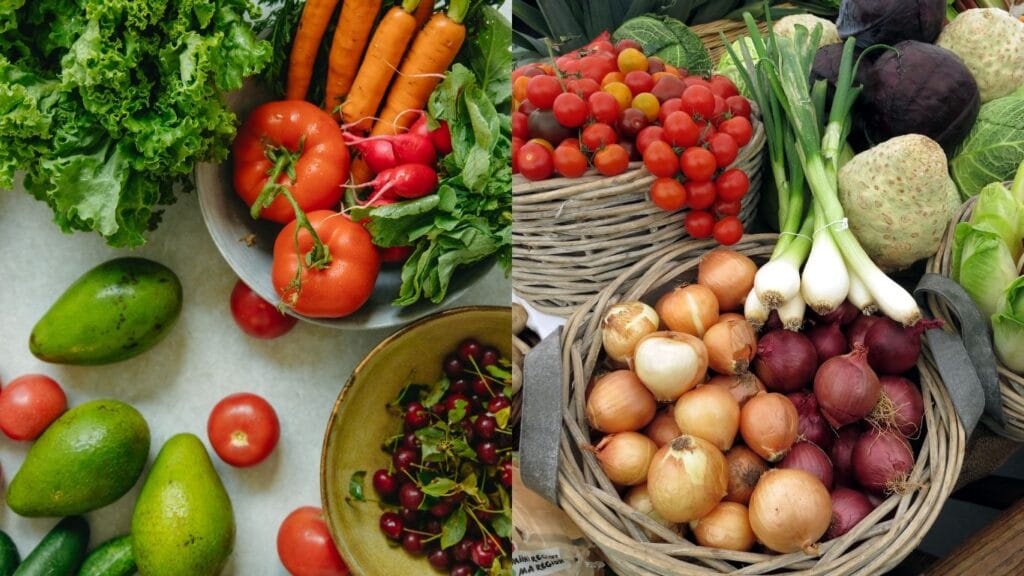
Hummus is a staple in Mediterranean cuisine and makes a perfect snack or lunch option. You may either buy hummus from the store or make it yourself. Pair it with sliced vegetables like carrots, cucumbers, and bell peppers, or enjoy it with whole-grain pita bread.
Hummus is rich in protein and healthy fats, while vegetables provide vitamins, minerals, and fiber.
Why It’s Great for Meal Prep:
- Hummus is a great source of protein and healthy fats, making it a filling snack or part of your meal.
- It’s easy to store and lasts for several days.
- It’s great for a Mediterranean diet fast food alternative that you can grab and go.
5. Mediterranean Diet Baked Salmon
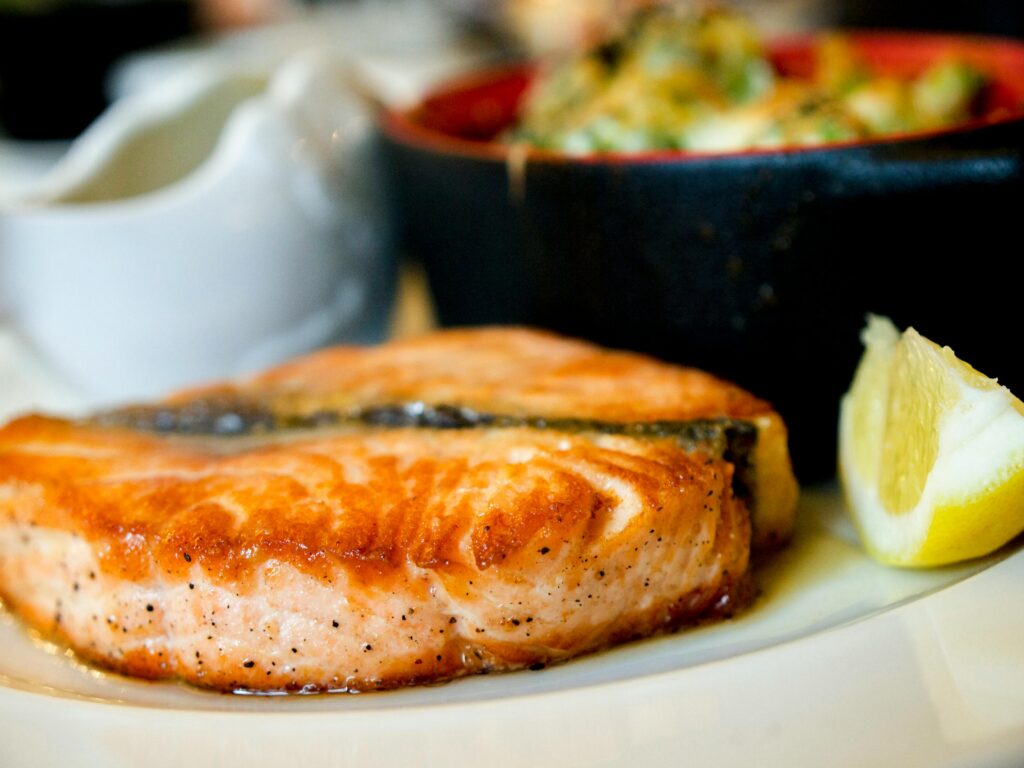
Salmon is a heart-healthy fish that’s full of omega-3 fatty acids. These healthy fats help reduce inflammation and improve cardiovascular health. Mediterranean diet fast food doesn’t have to be unhealthy. Baked salmon is quick to prepare and works perfectly for meal prep. Simply bake the salmon with olive oil, garlic, and lemon, and pair it with roasted vegetables or a side of rice.
Why It’s Great for Meal Prep:
- Pairing it with vegetables or a grain like Mediterranean diet rice makes for a balanced meal.
- Salmon provides high-quality protein and omega-3 fatty acids, which are important for heart health.
- It can be baked in bulk and stored in the fridge for up to 3 days.
Tips for Mediterranean dinners, Meal Prep :
Meal prepping Mediterranean dinners doesn’t have to be complicated. Here are some easy tips to help you get started:
Don’t Forget Snacks: Add healthy snacks like hummus and veggies, olives, or fruit to your meal prep routine.
Plan Your Meals: Choose a few recipes from the list above that you can make in bulk. You can rotate them throughout the week for variety.
Batch Cook: Cook your grains, proteins, and veggies in bulk, then assemble your meals in separate containers. This makes it easy to grab a healthy meal when you’re in a hurry.
Use Healthy Fats: The Mediterranean diet is rich in healthy fats, especially olive oil. Use it for cooking or in salad dressings for added flavor.
Store Properly: Invest in good containers to store your meals. Glass containers are a great option for keeping meals fresh.
The Last Thought
Meal prepping with Mediterranean foods is an excellent way to eat healthy while saving time. It offers numerous health benefits, including better heart health, blood sugar control, and weight management, by preparing meals in advance and spending less time cooking.
If you’re searching for simple Mediterranean meal prep options on a budget, these top five foods will help you get started.
Organic Healthy Snacks for Weight Watchers…




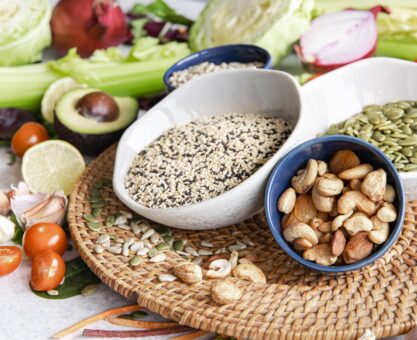


[…] Click this related article… […]
Hey! Quick question that’s totally off topic. Do you know how to make your site mobile friendly? My website looks weird when viewing from my iphone. I’m trying to find a template or plugin that might be able to resolve this problem. If you have any suggestions, please share. With thanks!
Thanks for your comment, sure please contact our website developer
alaminn8m123@gmail.com
I have read some excellent stuff here. Definitely worth bookmarking for revisiting. I wonder how so much attempt you place to make the sort of great informative site.
I have been surfing online greater than 3 hours today, but I by no means discovered any fascinating article like yours. It’s lovely price sufficient for me. In my view, if all site owners and bloggers made excellent content material as you did, the web will probably be a lot more helpful than ever before. “Baseball is 90 percent mental. The other half is physical.” by Lawrence Peter Berra.
I’m impressed, I need to say. Really hardly ever do I encounter a weblog that’s both educative and entertaining, and let me tell you, you may have hit the nail on the head. Your idea is excellent; the issue is something that not enough people are talking intelligently about. I am very happy that I stumbled throughout this in my search for one thing relating to this.
I genuinely enjoy examining on this internet site, it has got excellent articles. “Never fight an inanimate object.” by P. J. O’Rourke.
Thanks.
Hi there, I found your website by way of Google while searching for a related subject, your website came up, it seems great. I have bookmarked it in my google bookmarks.
Thanks.
I’m not that much of a internet reader to be honest but your blogs really nice, keep it up! I’ll go ahead and bookmark your site to come back later on. All the best
Thanks.
I’m not sure why but this site is loading extremely slow for me. Is anyone else having this issue or is it a issue on my end? I’ll check back later on and see if the problem still exists.
May be you have a bad network.
I?¦m no longer sure where you’re getting your info, but good topic. I needs to spend a while finding out much more or figuring out more. Thanks for excellent info I used to be searching for this info for my mission.
My pleasure.
Great work! This is the type of information that should be shared around the internet. Shame on Google for not positioning this post higher! Come on over and visit my website . Thanks =)
Thanks for your support.
Do you mind if I quote a couple of your articles as long as I provide credit and sources back to your blog? My blog is in the exact same area of interest as yours and my visitors would definitely benefit from a lot of the information you provide here. Please let me know if this alright with you. Thanks!
for sure.
I have been exploring for a little bit for any high-quality articles or blog posts on this kind of space . Exploring in Yahoo I eventually stumbled upon this web site. Studying this information So i am happy to express that I have an incredibly just right uncanny feeling I discovered just what I needed. I so much indubitably will make sure to don’t overlook this web site and provides it a look regularly.
Regards for this terrific post, I am glad I discovered this web site on yahoo.
Hello. magnificent job. I did not imagine this. This is a splendid story. Thanks!
Hello. impressive job. I did not imagine this. This is a excellent story. Thanks!
After I originally commented I clicked the -Notify me when new feedback are added- checkbox and now each time a comment is added I get 4 emails with the same comment. Is there any way you’ll be able to remove me from that service? Thanks!
I see something truly special in this internet site.
Fantastic web site. Plenty of useful info here. I am sending it to some pals ans also sharing in delicious. And obviously, thanks in your sweat!